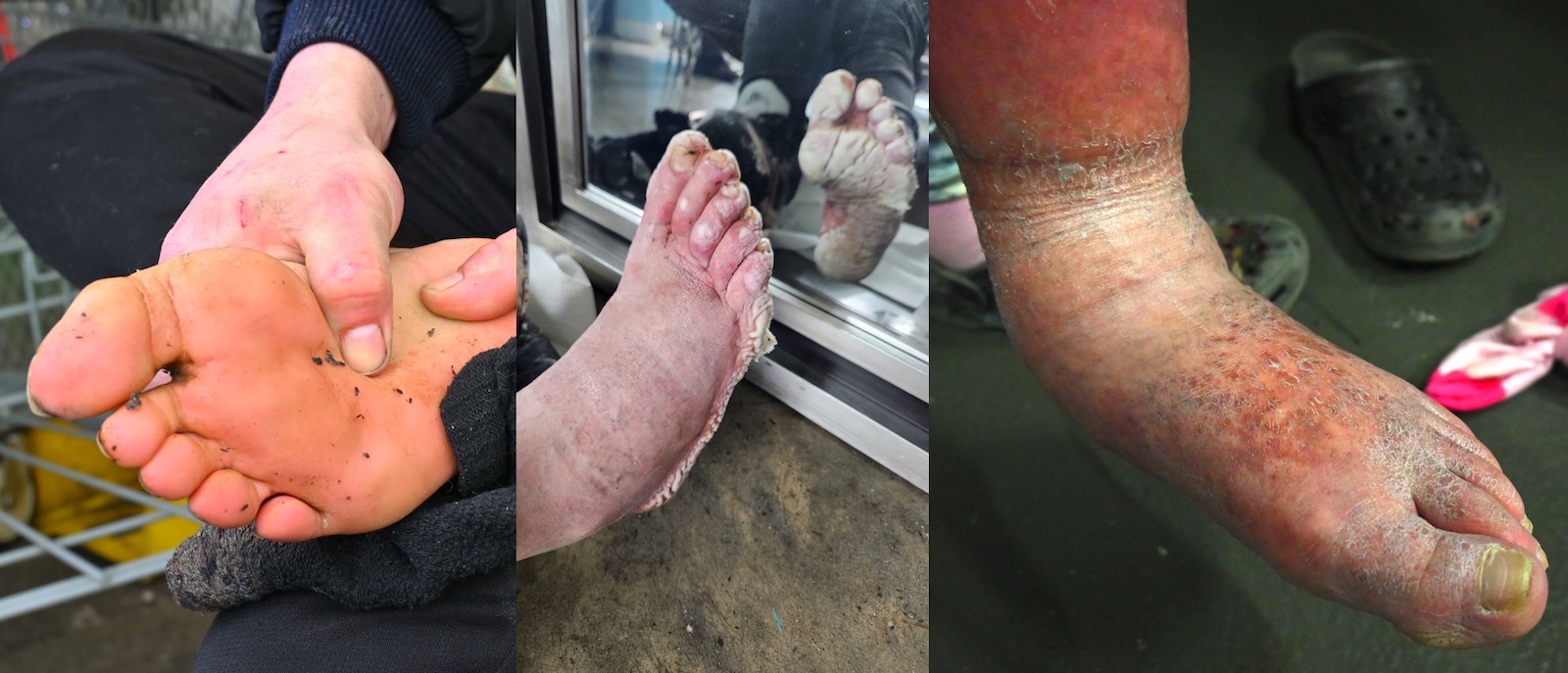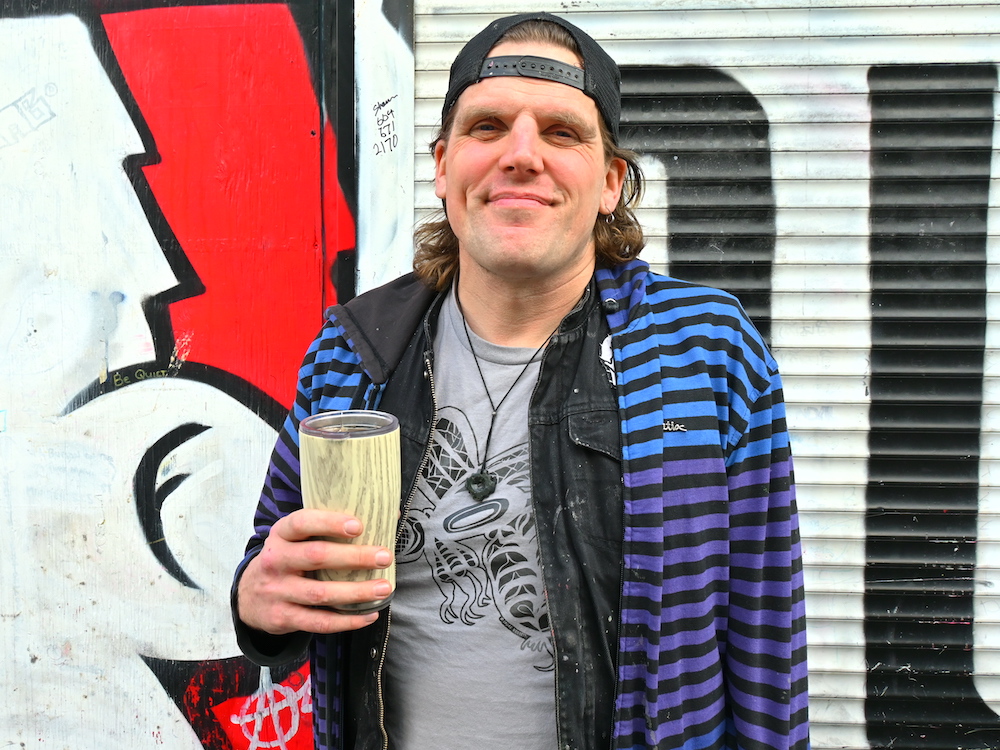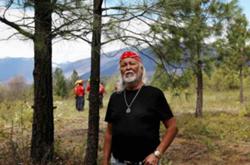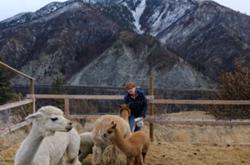[Editor’s note: This piece contains photos of the foot condition discussed in this article.]
In the winter and spring, unhoused people in Vancouver struggle with something known anecdotally as “street feet.”
It happens when the rain soaks your socks and shoes and you’re unable to clean and dry your feet regularly, sometimes leaving them damp for months on end.
This leads to a condition that was first identified as “trench foot” and suffered by soldiers during the First World War.
In extreme cases, the condition can lead to gangrene and amputation, said Bernice Budz, CEO of the Nurses and Nurse Practitioners of BC.
Budz, a registered nurse and a trained nurse practitioner, said foot health is extremely important, especially if a person is in unstable housing or street entrenched and spending most of their time on their feet.
The Tyee spoke with six people who have experienced street feet who are living in Vancouver’s Downtown Eastside neighbourhood. They spoke about how hard it is to do basic self-care while unhoused and in a constant state of fight or flight, how there aren’t easily accessible places for men to shower and properly dry off in the DTES core, how the shame of stinky feet kept them away from places where they could dry off and how current donations don’t meet the community’s foot-care needs.
Trey Helten, general manager of the Vancouver Overdose Prevention Society, said he remembers walking for three days straight when he was unhoused because he didn’t have anywhere safe to stop and rest.
You can never relax or take off your shoes even in your tent at night because a security guard or police officer might be about to start yelling at you, “or someone will try and light your tent on fire, or light you on fire,” he said. “You always have to be ready to start running.”
When you’re street entrenched, a couple of days quickly turn into a couple of months and “your socks turn into a second skin, they’re like leather,” Helten said.
A man who spoke with The Tyee and asked to be identified as Angus said street feet only really hurt when you take your shoes and socks off. The skin is so sensitive it feels like an open wound that is itchy. Angus, who is currently housed, takes care to soak his feet with Epsom salts nightly and tries to dry his sneakers as best he can.
Still, he has some blistering along the underside of his foot and a couple of healed sores on his ankles.
The Tyee is using pseudonyms, first names and initials in this piece where requested to protect sources’ privacy.
Another man, K., who is currently unhoused, told The Tyee he tries to get a fresh, donated pair of socks every day to offer his feet some reprieve and slips his feet out of his sneakers several times a day for airflow.
A third man The Tyee spoke with, T., said he is unhoused, has cancer and is unable to prioritize the health of his feet. The skin of T.’s foot is pink and shiny, and he is suffering from toenail fungus. T. said he picks up donated socks occasionally but often misplaces them. He remembers to change his socks maybe once a week, he said.
Budz said street feet can develop in as little as 48 hours if someone can’t wash and dry their feet and put on a clean, dry pair of socks and shoes in the right size.
Damp shoes increase a person’s risk of growing fungi or bacteria on their skin, Budz said.

Being on your feet all day or in damp, ill-fitting shoes increases the risk of developing a blister or a crack in the skin, which can lead to an infection. And if a person has bad circulation because their feet are cold, they have frostbite, they smoke or they’re simply older, then it’s harder for their body to fight off an infection, Budz added. Poor nutrition and not having a place to rest where your feet can be warm, dry and clean also make it harder for your body to heal and fight an infection, she said.
Budz said it’s important for people to clean their feet with warm water once a day (with soap if possible) and to completely dry their feet, especially the bits in between the toes. She recommends having two pairs of shoes if possible, in order to wear one and dry the other. Having insoles that can be traded out helps, too.
If someone is street entrenched or unable to care for their feet, Budz recommends finding a clinic where a nurse can help care for their feet every couple of days. Basic foot care can be done at any clinic where a patient can connect with a nurse, but service may be limited based on time, resources and what other care a patient may need at that time, she added.
Private nurses specializing in foot care can be found by searching the Lower Mainland Foot Care Nurses Association directory or the Canadian Association of Foot Care Nurses directory.
Helten said Insite also used to offer foot washing and remembers Ron Morgan, a PHS peer who made foot baths a priority at Insite. Morgan passed away in January 2023 and Insite hasn’t offered the service since, he said.
A nurse will help soak a patient’s feet in warm water, which feels nice, helps their nails breathe, cleans their feet and helps a patient relax, Budz said. A nurse can then check the warmth, colour and pulse of a person’s feet and check for breaks in the skin, infections or sore spots.
This gives the nurse a snapshot of a person’s overall health and also helps build a trusting relationship between caregiver and patient, which is important because if a person has bad foot health, they’re going to need ongoing care, Budz said.
Kitty Powerfox told The Tyee her strategy to avoid street feet is to wear a pair of Crocs year-round because she can completely wash and dry her shoes every night and put on a dry pair of socks in the morning.
Powerfox said she was once given a pair of donated shoes that stank so badly they made a man nearby retch. Organizations that hand out donated shoes should either clean the shoes or put up posters about how to clean the shoes yourself, she said.
After the stinky shoe incident, Powerfox went out and bought a pair of flip-flops and wore those instead, she said, even though it was the middle of winter.
It’s getting harder and harder for people in the neighbourhood to be able to buy shoes because the stores that sold cheap, warm and waterproof shoes, such as the Army and Navy and the dollar store, are closing, Helten said.
There are also not a lot of facilities where men can shower, dry off and maybe get a fresh pair of socks and shoes, Helten added. There’s the Evelyne Saller Centre and Gathering Place Community Centre, where you can have a shower, and the Kettle Society and Overdose Prevention Society Resource Hub (at 144 E. Hastings St.), which accept donations and hand out socks and shoes when they have supplies.
Helten noted how none of these facilities are centrally located in the DTES, which can limit who can access them. If you’re street entrenched and experiencing street feet, then even walking six blocks to the Evelyne Saller Centre “feels like walking 100 miles,” he said.
Donated clothes and shoes for men are often in strange, embarrassing styles, too, and some men would rather skip the donation than “dress like a grandpa,” a woman who asked to be referred to as Kimberly told The Tyee.
She said the women’s shelters always have stylish and comfortable clothes to give out and it’s easier to find something that fits you and that you like when you’re a woman.
Helten said that after years of dealing with street feet, he bought himself a pair of “Walmart special” lined rubber boots. “There’s nothing slick about it but after years of street feet I don’t give a fuck if I look like a farmer. Function over fashion,” he said.
If you’re housed in a single-room occupancy hotel with shared bathrooms, you might not have a clean or hygienic place to care for your feet, Helten said. Some SRO bathrooms are “disgusting” and don’t have doors that lock, which puts tenants at risk of assault, he added.
Helten showed pictures of SRO bathrooms to The Tyee that included clogged toilets, filthy floors and showers with 10 centimetres of murky water pooled at the bottom. Someone may have housing but that doesn’t mean they have a clean, safe place to kick off their shoes, he said. ![]()
Read more: Health, Rights + Justice, Housing

















Tyee Commenting Guidelines
Comments that violate guidelines risk being deleted, and violations may result in a temporary or permanent user ban. Maintain the spirit of good conversation to stay in the discussion and be patient with moderators. Comments are reviewed regularly but not in real time.
Do:
Do not: